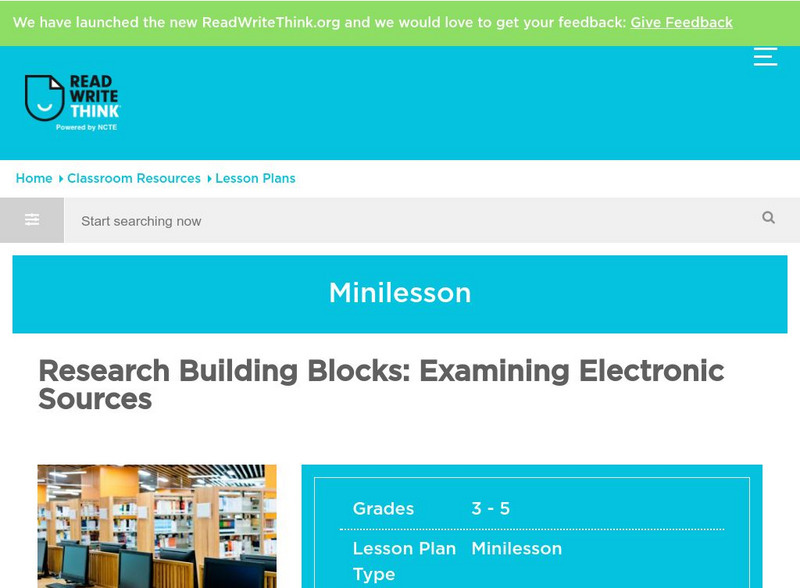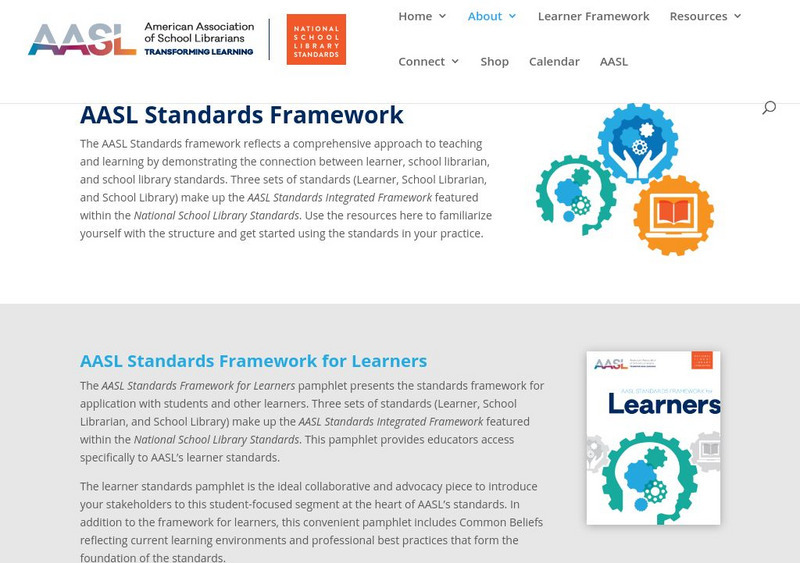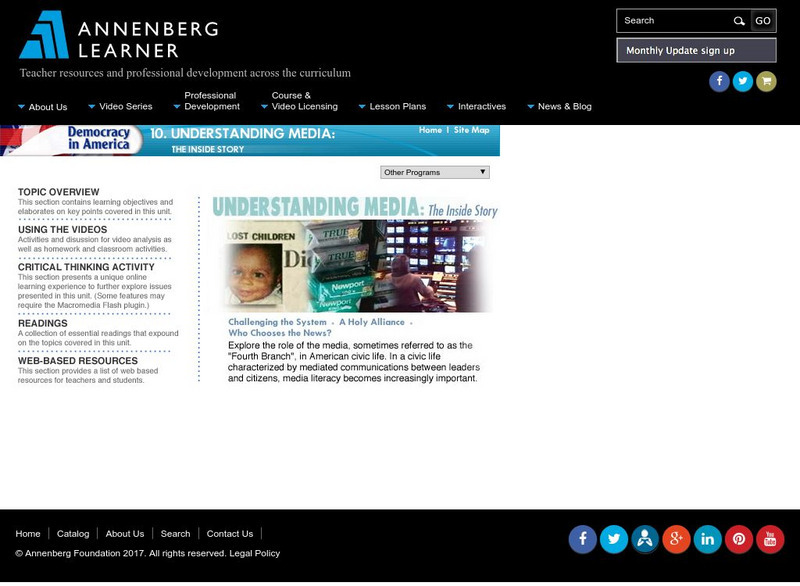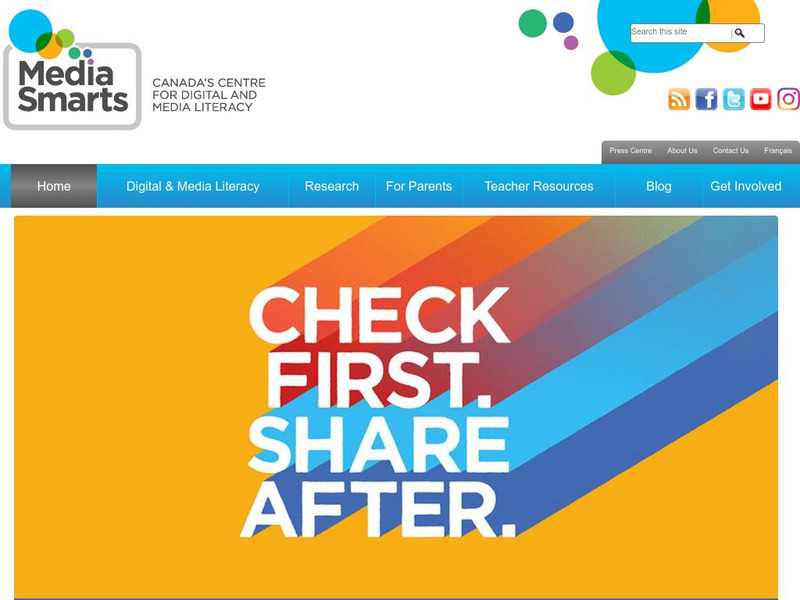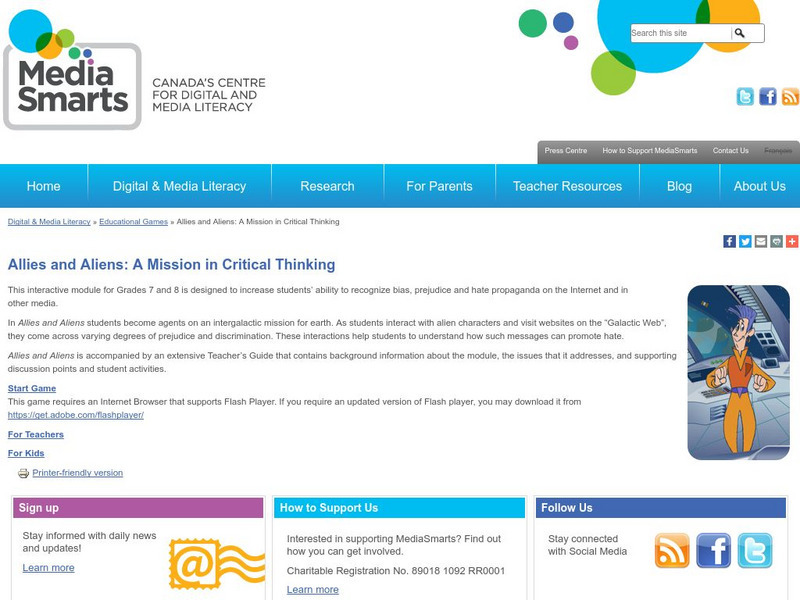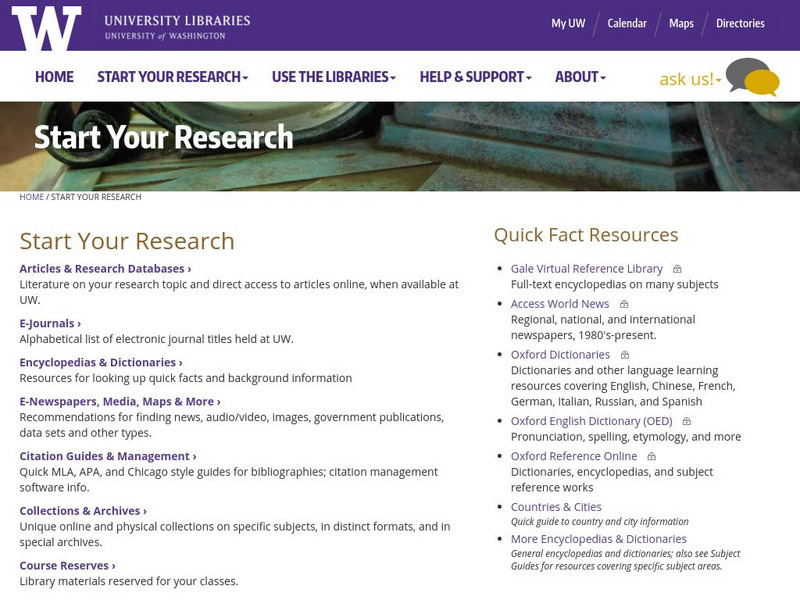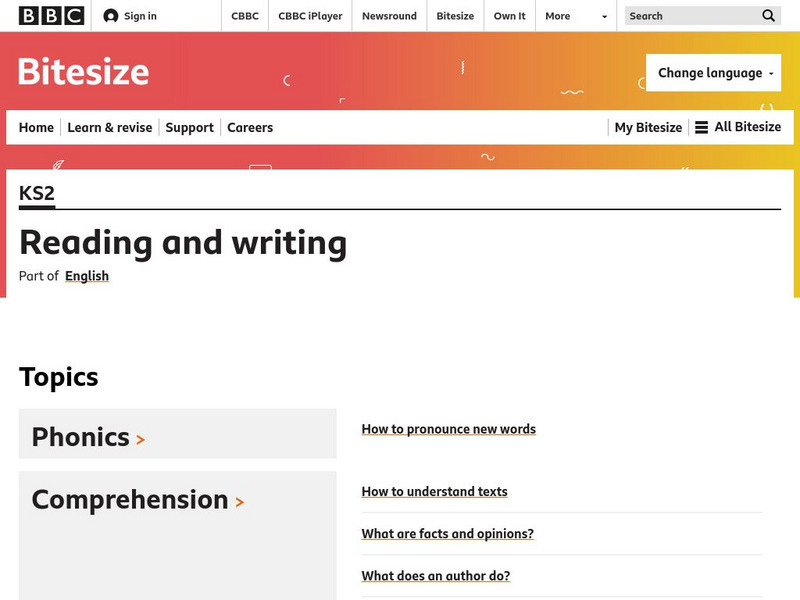Curated OER
Evaluating Web Sites
Students study the six criteria for evaluating Web sites, identify Web sites with accurate, relevant, and current information on a given topic. They use those criteria to locate three sites that provide good information and three that do...
Curated OER
Seeking, Locating, Accessing, and Using Information
Students complete reserach on a topic of their choice by following the Big Six research program. In doing so, students locate information and assess the validity and usefulness of sources.
Curated OER
Using The Catalog to Locate Information
Fourth graders identify prior knowledge of the Public Access Catalog. They identify parts of a catalog record. Students use the Public Access Catalog to locate an item. The teacher place 6-8 books on the tables. Students locate several...
Other
The Process of Research Writing
This online book outlines a process for teaching research and writing in ways beyond the traditional, one-time, massive "research paper" Lots of food for thought. The chapters take you through the writing process and more. Click on the...
Other
Drew University: Designing Assignments to Develop Information Literacy Skills
This handy page will help teachers in the research assignment design area so critical to the development of information literacy.
Other
Critical Issue: Using Technology to Improve Student Achievement [Pdf]
NCREL provides a detailed report on the use of technology for student improvement. Click on Action Options and scroll down the area designated for teachers to view NCREL ideas on classroom implementation.
Other
Noodle Tools: Information Literacy Design, Process, and Outcomes
Well-organized site that details the "Building blocks," of research for informational literacy. With this, users should have a very good understanding of what Information Literacy is. Complete with student skills and strategies, student...
Other
Sc Dept. Of Education: The Simple Four: An Information Problem Solving Model
Martha Alewine, consultant for South Carolina's School Library Media Services, has created several easy to use documents that show teachers and students how to use the Simple Four method of doing research. The steps include planning,...
North Central Regional Educational Laboratory
Ncrel: Critical Issue: Using Technology to Improve Student Achievement
NCREL provides a detailed report on the use of technology for student improvement. Click on Action Options and scroll down the area designated for teachers to view NCREL ideas on classroom implementation.
ReadWriteThink
Read Write Think: Research Building Blocks: Examining Electronic Sources
This lesson helps elementary students identify the important components of web site evaluation. It includes a website evaluation question sheet.
American Association for the Advancement of Science
Eurek Alert: Hostile Political Tv Leads to Negative Attitudes
This is an article written about a study done at Ohio State University that discovered that hostile political television leads to negative attitudes about politics.
University of Wisconsin
University of Wisconsin: Research Tips & Tricks
This page offers some specifically targeted videos and tip sheets to help you develop several vital research skills. You may need to copy and paste the links provided in order to access the videos. W.11-12.7 Research
American Library Association
Aasl: Standards for the 21st Century Learner
This document contains the Standards for the 21st-Century Learner published by the American Library Association. The standards provide a conceptual framework and broad guidelines for describing the information-literate student. These...
Other
Media Education Lab: Assignment: Media Literacy: Secondary School
A well-done set of units that helps teachers teach the importance of media literacy to their learners. Click on Secondary School Introduction to see a video of teachers in the classroom instructing students in ways of using and...
Annenberg Foundation
Annenberg Learner: Democracy in America: Understanding Media: The Inside Story
This unit highlights the integral role that the media plays in American politics to communicate between the leaders and the public. Offers video, readings, web resources, and activities.
Other
Partnership for 21st Century Learning
The Partnership website is an excellent place to learn what 21st century skills are, why they are important and who is supporting their development. Be sure to check out the Learning Hub.
Media Smarts
Media Awareness Network
The Media Awareness Network (MNet) "promotes media and Internet education by producing online programs and resources". MNet provide resources pertaining to blog & news, media issues, research, educational games, and special initiatives.
Media Smarts
Media Awareness Network: Allies and Aliens: A Mission in Critical Thinking
This interactive module for Grades 7 and 8 is designed to increase students' ability to recognize bias, prejudice, and hate propaganda on the Internet and in other media. Includes an extensive teacher's guide.
Other
University of Washington Libraries: Starting Research
If you need help knowing where to start your research, or if you're a teacher looking for a way to help students understand the research process, this resource is terrific. Interactive tutorials on a number of topics offer review quizzes...
Other
History News Network: Why Is News So Negative These Days?
This is actually the third installment in a five-part series of articles that looks at the question - "Where Have All the Voters Gone?." This particular article takes a look at the negativity in the news, but you may want to take a look...
BBC
Bbc: Ks2 Bitesize English: Reading
This site provides activities, games, tests, and worksheets in reading areas: deduction, dictionaries, poetry, and non-fiction.
United Nations
Unesco: Information and Communication Technologies in Schools
This UNESCO handbook for teachers delves into information and communication technologies in schools. Scroll down through the pdf document to pages 5 through 8 for a list of specific topics included in this extensive resource.
Other
The Big 6: Information Literacy for the Information Age
This is the home page for Big 6, a popular approach to information literacy and technology. There are sections for all grade levels and for teachers, showing how to incorporate the Big 6 into all kinds of lessons. The Big 6 are: task...
FNO Press
Fno.org: Inspired Investigations
An article at From Now On about how to help students do better research by changing the focus of research assignments and teaching students to ask essential questions. Some suggestions include using mind mapping, and using Inspiration to...





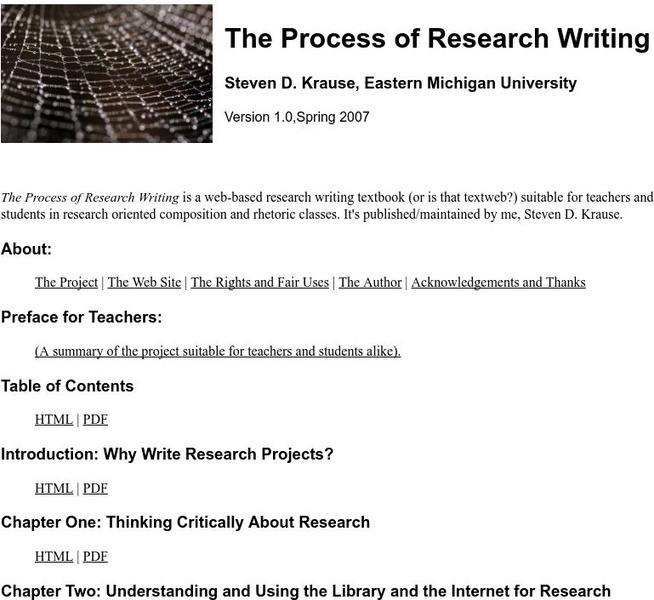

![Critical Issue: Using Technology to Improve Student Achievement [Pdf] Article Critical Issue: Using Technology to Improve Student Achievement [Pdf] Article](https://d15y2dacu3jp90.cloudfront.net/images/attachment_defaults/resource/large/FPO-knovation.png)
